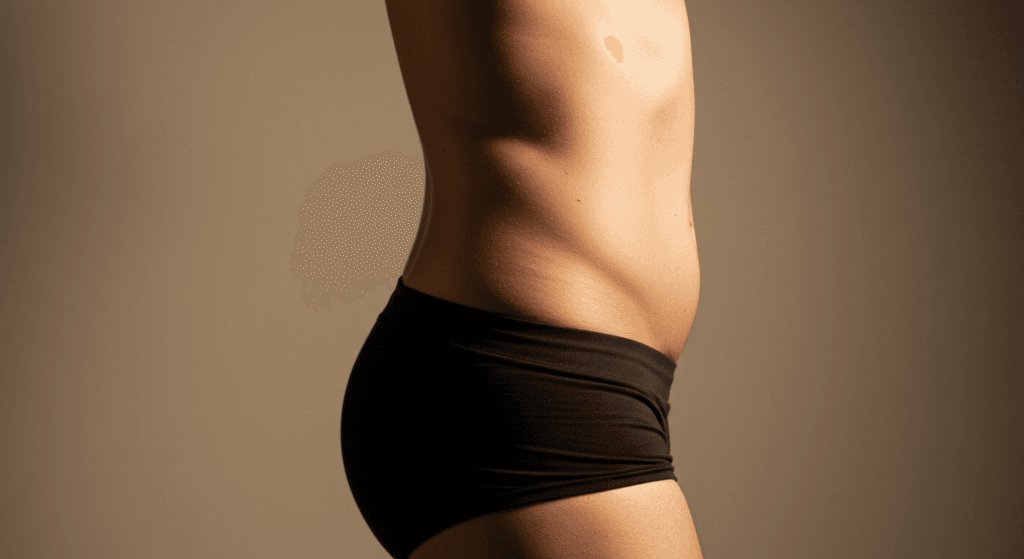Liposuction is a body contouring procedure, not a weight-loss solution. While it effectively removes fat cells from targeted areas, it’s crucial to understand that weight regain is possible if lifestyle changes aren’t implemented. This article clarifies the likelihood of weight regain after liposuction and outlines strategies for long-term success.
Table of Contents
Liposuction Weight Regain: The Facts
Liposuction permanently removes fat cells from treated areas. However, the remaining fat cells can still increase in size if caloric intake exceeds expenditure. This means that while the treated area will appear slimmer, weight gain in other areas is entirely possible. The amount of weight regained varies significantly depending on individual factors. It’s not uncommon for patients to experience some weight fluctuation post-procedure.
Many studies indicate that a significant portion of patients regain some weight after liposuction. The exact percentage varies widely depending on the study methodology and patient population, but it’s safe to say that weight maintenance requires conscious effort. Simply undergoing the procedure doesn’t guarantee permanent weight loss. The procedure targets localized fat deposits, not overall body composition.
The key takeaway is that liposuction is not a shortcut to permanent weight loss. It’s a sculpting tool used to refine body contours. Patients who expect liposuction to solve underlying weight issues are often disappointed. Realistic expectations are crucial for a positive outcome and to avoid potential disappointment.
Successful long-term results hinge on a commitment to a healthy lifestyle. This includes a balanced diet and regular exercise. Patients should view liposuction as a complement to, not a replacement for, healthy habits. Ignoring these factors increases the likelihood of weight regain.

Factors Influencing Weight Changes
Post-operative dietary habits are paramount. Consuming a calorie-dense diet rich in processed foods and sugary drinks will readily lead to weight gain, negating the results of the procedure. A well-balanced, nutritious diet is essential for maintaining a healthy weight.
The level of physical activity significantly impacts weight management. Regular exercise burns calories, boosts metabolism, and contributes to overall well-being. Inactivity, on the other hand, promotes weight gain. A tailored exercise plan should be part of the post-operative care strategy.
Genetic predisposition plays a role. Some individuals are genetically predisposed to weight gain, making it more challenging to maintain a healthy weight after liposuction. Understanding one’s genetic tendencies is helpful in developing a personalized weight management plan.
Pre-existing medical conditions can influence weight fluctuations. Certain medical conditions can impact metabolism and make weight management more difficult. Patients with pre-existing conditions should discuss their situation with their physician and surgeon to develop a safe and effective post-operative plan.

Maintaining Weight After Liposuction
A balanced diet, emphasizing whole foods, lean proteins, and fruits and vegetables, is crucial. Portion control is equally important. Patients should work with a nutritionist to create a personalized meal plan that supports their weight goals.
Regular exercise is non-negotiable. A combination of cardiovascular exercise and strength training is ideal for maintaining muscle mass and boosting metabolism. Patients should aim for at least 150 minutes of moderate-intensity aerobic activity per week.
Consistent monitoring of weight and body measurements is essential. Regular check-ups with the surgeon and adherence to the post-operative care plan are crucial for early detection of any potential issues. This allows for timely intervention if necessary.
Long-term commitment to a healthy lifestyle is the cornerstone of maintaining the results of liposuction. This is not a temporary fix; it’s a lifestyle change that requires ongoing dedication and effort. Support groups and ongoing counseling can be beneficial for maintaining motivation.

Long-Term Success and Lifestyle
Long-term success depends heavily on patient adherence to a healthy lifestyle. This includes maintaining a balanced diet, regular exercise, and consistent monitoring of weight and body measurements. It’s a continuous process, not a destination.
Post-operative support is crucial. Regular follow-up appointments with the surgeon and access to a support network are essential for long-term success. This helps patients stay motivated and address any challenges that may arise.
Psychological factors play a significant role. Patients should address any underlying body image issues or emotional eating habits before and after the procedure. Therapy or counseling can be beneficial in this regard.
Ultimately, the longevity of liposuction results is directly correlated with the patient’s commitment to a healthy lifestyle. It’s a collaborative effort between the patient and their healthcare team to achieve and maintain optimal results.
Liposuction is a powerful tool for body contouring, but it’s not a magic bullet for weight loss. Weight regain is possible if patients don’t adopt and maintain a healthy lifestyle. Long-term success requires a commitment to a balanced diet, regular exercise, and ongoing self-care. Realistic expectations and a proactive approach are key to achieving and maintaining the desired results.
Transform Your Confidence with Surgyteam!
Join the thousands of satisfied patients who have experienced the exceptional care and expertise of Surgyteam’s renowned plastic surgeons. Whether you’re seeking aesthetic enhancements or reconstructive surgery, our dedicated team in Antalya is here to provide you with the highest quality treatment and personalized care.



